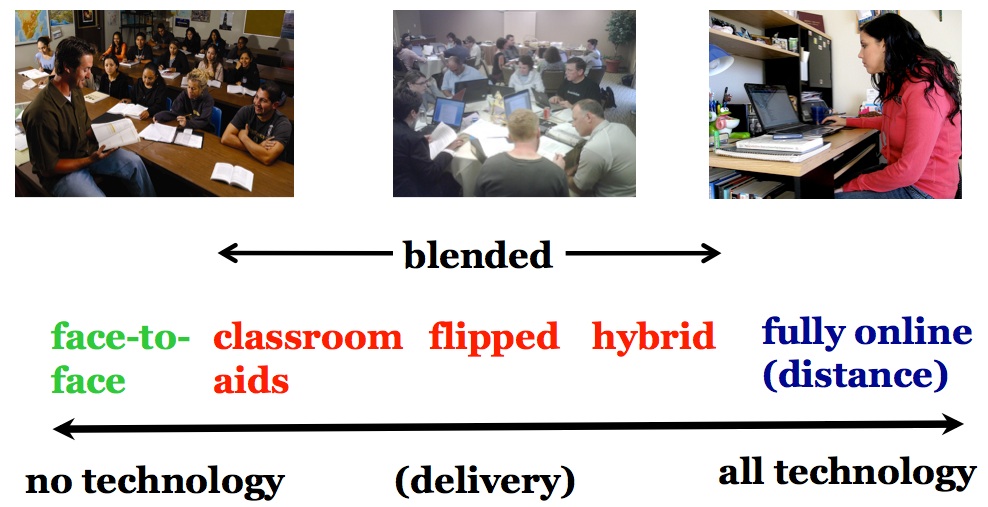Why Inquiry Learning is Worth the Trouble
http://ww2.kqed.org/mindshift/2013/01/29/what-does-it-take-to-fully-embrace-inquiry-learning/
EduCon 2.5
it’s important to question whether alleged “personalized,” “project-based,” or “collaborative” learning efforts are actually helping students and teachers to “hold ourselves in a state of questioning.”
In a true inquiry-based model, how learning happens isn’t as important as whether that learning encourages students to try to learn even more.
“Inquiry means living in the soup. Inquiry means living in that uncomfortable space where we don’t know the answer.”
Increased collaboration between students and increasing student scrutiny of educational content were two other signs Lehmann and the group said signaled the right approach, even if they clashed with classroom norms. For example, collaboration can often lead to tricky discussions about what part of a students’ work are his or her own and what part is recycled. (see IMS blog entry on academic dishonesty: https://blog.stcloudstate.edu/ims/2015/05/04/cheating-inadvertently/)
Inquiry-based education should improve student engagement, critical thinking skills, and cross-disciplinary opportunities (see IMS blog entry on cross-disciplinary idea and subjects versus topics equivalent https://blog.stcloudstate.edu/ims/2015/03/24/education-reform-finland/)
7th Annual Teaching & Learning Colloquium
Learning Space Innovation: here, there and anywhere
April 17, 2015. Guest Speaker Bryan Alexander
http://facultycenter.stonybrook.edu/events/StonyBrookColloquium2015
Keys to Building a Flexible Learning Space Initiative on your Campus
http://www.academicimpressions.com/webcast/keys-building-flexible-learning-space-initiative-your-campus
June 3, 2015 – 1:00 to 2:30 pm EDT
http://dmlcentral.net/blog/s-craig-watkins/mobile-learning-futures
when Latinos and African Americans go online from home they are most likely doing so via a handheld device.
More on mobile learning in this blog:
https://blog.stcloudstate.edu/ims/?s=mobile+learning
The underlying assumption of an education system that relies so heavily on test-based assessment is that content is what matters.
For those who prioritize learning that can be measured using only quantitative assessments, game-based learning probably just looks like a way to increase student engagement and content retention. It might seem like a complex workbook, or an entertaining quiz. Perhaps game-based learning looks like a great tool for practice and drilling, like a super sophisticated flash-card system that makes memorization more fun. But this kind of thinking doesn’t take into account the broader understanding of what matters. Game-based learning is a great classroom tool because it allows for interdisciplinary learning through contextualized critical thinking and problem solving.
Games in the classroom can encourage students to understand subject matter in context — as part of a system. In contrast to memorization, drilling, and quizzing, which is often criticized because it focuses on facts in isolation, games force players to interact with problems in ways that take relationships into account. The content becomes useful insofar as it plays a part in a larger multi-modal system.
Definition
Game-based learning is an instructional method that allows students to experience, understand, and solve problems in the world of a particular subject, or system, from the inside.
One promise of game-based learning is that it has the potential of building comprehension and literacy rather than retention. It does this by combining instruction, practice, and assessment. Teachers become the facilitators of a process where instruction is experiential. Practice is project based, requiring students to solve new problems and address new challenges using the new ideas to which they’ve been introduced. And assessment no longer measures a student’s ability to regurgitate information, or to choose among multiple answers, but rather, to use the content, or subject matter, in context. Even more impressive is that in order to successfully manipulate one piece within a comprehensive and complex system, the students must understand every piece of the system.
http://blogs.kqed.org/mindshift/tag/games/


